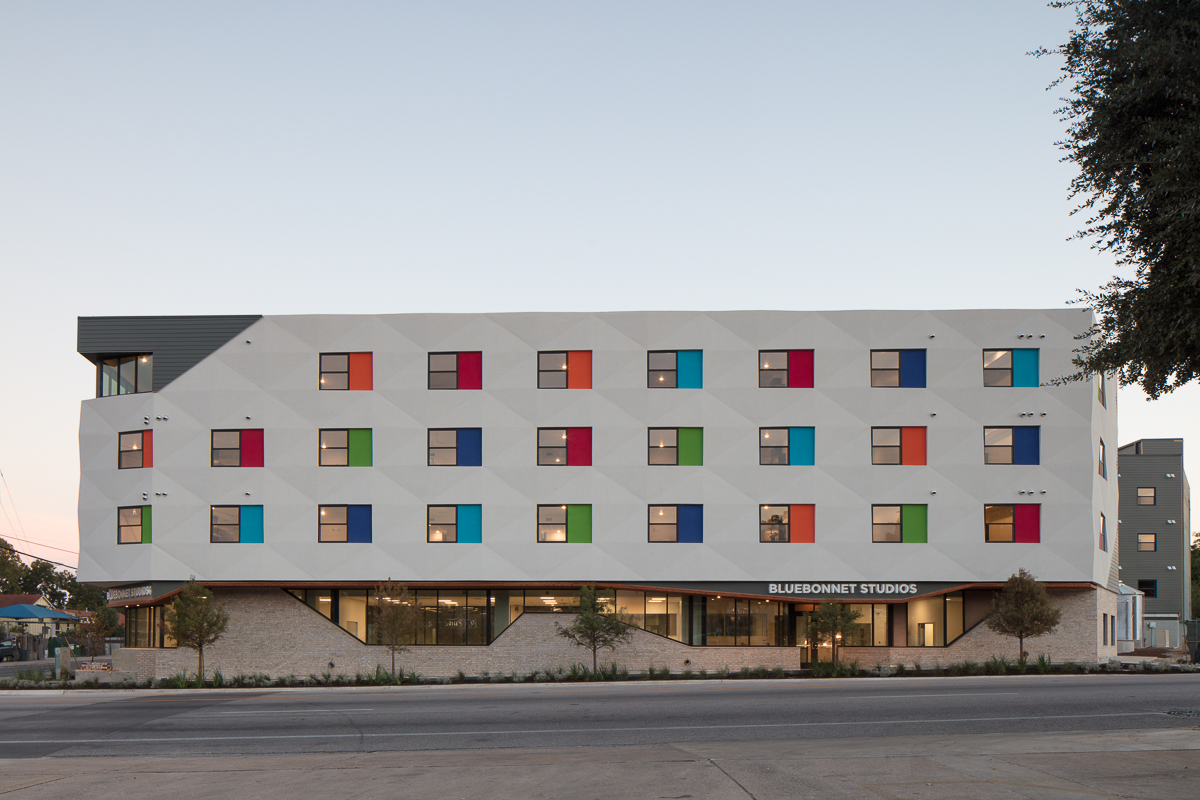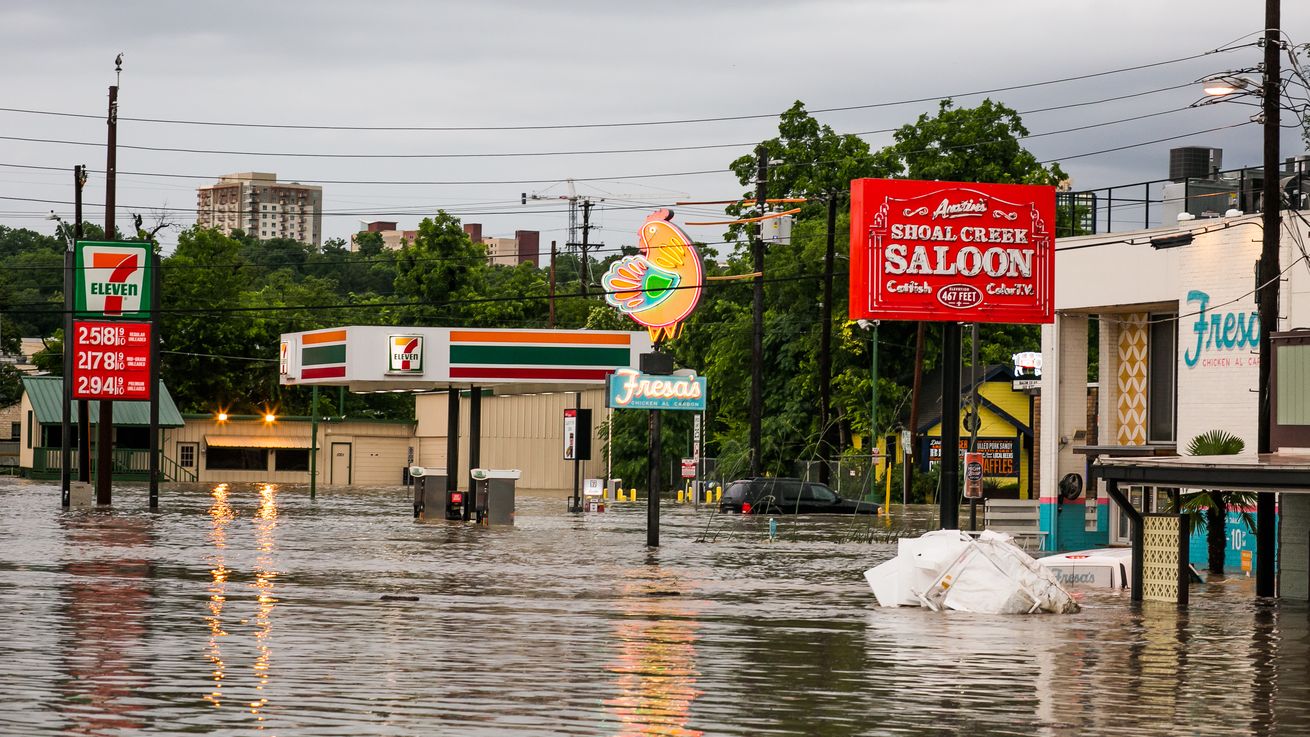We get the frustration. You know that voting is the right thing to do… but then you take a look at the ballot and see there are eleven propositions for you to decide on. Eleven!!
Talk about confusing.
That’s why today, we’re breaking them all down for you.
First up, the bond propositions.
If you live within Austin city limits, you’re going to see eleven propositions (sometimes known as props) on your ballot. The first seven (A through G) all have to do with a bond.
What’s a bond? For simplicity’s sake, a bond is basically just a loan taken out by the city (and paid for with property taxes) in order to bolster city services like roads, parks, museums and more.
All together, the full slate of bonds (props A through G) total $925 million. When you go to vote, you’ll have the opportunity to vote yay or nay on all them individually. However, if they all pass, the average Austinite (with a home worth $332,366) will see their property taxes increase by about $60 a year.
Ultimately, when you go to vote, you’ll have to decide if the things the community will get by passing the bond are worth the extra money it will cost you on your property tax bill.
For reference, here’s what some of our local elected officials have been saying about the bond propositions:
“We voted to put forward an investment significant enough that it will directly confront our housing crisis, our gentrification, homelessness in our city, and segregation in our city.” Council Member Greg Casar on his Facebook page
“I think that we know that we can’t subsidize our way out of problems we have with the lack of affordable housing in this city. The reason we are in this position is it is so expensive and cumbersome to build to begin with. I honestly think it is a little disingenuous to ask voters for a quarter of $1 billion when it is really not going to address problems we are trying to solve.” – Council Member Ellen Troxclair, in the Austin American-Statesman
“We have big affordability challenges and we need the courage to step forward with big answers…This is a big answer that this city needs” – Austin Mayor Steve Adler, speaking at a rally in June, held in support of putting a big affordability bond on the ballot
“I don’t mean to be Debbie Downer. I know that you’re all over the city and have gone into the different districts, but I’m not hearing what you’re hearing from the people in District 1. That’s all I can speak to. What I’m getting is tax fatigue, and every year there’s yet another bond that is going to cause property taxes to go up.” – Council Member Ora Houston speaking to Mayor Steve Adler, in the Austin Monitor
And here is a podcast recording from our radio partner, Shades of Green, covering props A through G…
Prop A – Affordable Housing
Exact Ballot Language –
The issuance of $250,000,000 in tax supported general obligation bonds and notes for planning, constructing, renovating, improving, and equipping affordable housing facilities for low income and moderate income persons and families, and acquiring land and interests in land and property necessary to do so, funding loans and grants for affordable housing, and funding affordable housing programs, as may be permitted by law; and the levy of a tax sufficient to pay for the bonds and notes.
What that actually means –
This money will be used to:
- Buy land for new affordable housing developments
- Build new affordable housing developments
- Pay for home repairs for low-income homeowners, allowing them to stay in the neighborhoods they know and love, even as their houses age
More info –
To learn more about Prop A, check out this Facebook Live interview we did with John Lawler, the campaign manager for Keep Austin Affordable, which is advocating in favor of Prop A.
Prop B – Libraries, Museums and Cultural Art Facilities
Exact ballot language –
The issuance of $128,000,000 in tax supported general obligation bonds and notes for planning, acquiring, constructing, renovating, improving, and equipping community and cultural facilities, libraries, museums, and cultural and creative arts facilities, and acquiring land and interests in land and property necessary to do so; and the levy of a tax sufficient to pay for the bonds and notes.
What that actually means –
The money will be used to:
- Fund renovations and improvements at our city’s major cultural centers, including the Mexican American Cultural Center, Asian-American Resource Center (AARC), Carver Museum, and the Mexic-Arte Museum.
- Build a new Dougherty Arts Center, which provides low cost arts classes to the community and is also home to a robust theater program and art gallery. The building needs to be replaced and moved because it was built on top of a landfill in a flood plain… and is suffering from a whole host of other problems because of the building’s age.
Prop C – Parks and Rec
Exact ballot language –
The issuance of $149,000,000 in tax supported general obligation bonds and notes for planning, acquiring, constructing, renovating, improving and equipping public parks, recreation centers, natural areas, and other related facilities, including, without limitation, playgrounds, hike and bike trails, sports courts, and swimming pools, and acquiring land and interests in land and property necessary to do so; and the levy of a tax sufficient to pay for the bonds and notes.
What that actually means –
The money will be used to:
- Allow the city to buy new land and put it aside for parks, including a big one in the Oak Hill area of south Austin.
- Build a new pool in Colony Park (in northeast Austin)
- Provide some major renovations at our city’s other pools (many of which were decades old and in danger of closing down without some serious repairs)
- Pay for improvements at existing city parks, including Roy G Guerrero Park in east Austin.
Prop D – Flood Mitigation, Open Space, and Water Quality Protection
Exact ballot language –
The issuance of $184,000,000 in tax supported general obligation bonds and notes for flood mitigation, open space and water quality and quantity for planning, designing, acquiring, constructing, and installing improvements and facilities for flood control, erosion control, water quality, water quantity, and storm-water drainage, and acquiring land, open spaces, and interests in land and property necessary to do so; and the levy of a tax sufficient to pay for the bonds and notes.
What that actually means –
The money will be used to:
- Allow the city buy more water quality protection lands (which are essentially just big swatches of land the city saves from development in order to preserve the water quality at Barton Springs and Lady Bird Lake).
- Fund storm drain and low water crossing improvements, as well as buyouts for homeowners who are living in unsafe, flood-prone areas.
Prop E – Health and Human Services

photo via the Yes on Proposition E campaign, featuring Council Member Delia Garza. Her district includes Dove Springs.
Exact ballot language –
The issuance of $16,000,000 in tax supported general obligations bonds and notes for planning, constructing, reconstructing, improving, and equipping a neighborhood public health and human services facility in the Dove Springs area; and the levy of a tax sufficient to pay for the bonds and notes
What that actually means –
The money will be used to:
- Build a Health and Human Services facility in Dove Springs, an underserved area of southeast Austin. The center will provide the neighborhood with an affordable high-quality childcare facility, a clinic for mothers and young children, immunizations for children and seniors, a food pantry, social work case management, breastfeeding support through an onsite lactation consultant, and space for partnering non-profits to provide services like job placement.
Prop F – Public Safety
Exact ballot language –
The issuance of $38,000,000 in tax supported general obligation bonds and notes for planning, renovating, improving, and equipping existing public safety facilities, specifically fire and emergency medical services stations, buildings, and other related facilities; and the levy of a tax sufficient to pay for the bonds and notes.
What that actually means –
The money will be used to:
- Pay for renovations at our city’s fire and EMS stations
Prop G – Transportation Infrastructure
Exact ballot language –
The issuance of $160,000,000 in tax supported general obligation bonds and notes for planning, constructing, reconstructing, and improving roads, streets, intersections, sidewalks, bridges, urban trails and related utility and drainage infrastructure for the roads and streets; improving traffic signal synchronization and control systems; acquiring and installing traffic signals; and acquiring land and interests in land and property necessary to do so; and the levy of a tax sufficient to pay for the bonds and notes.
What that actually means –
The money will be used to:
- Help rehab and reconstruct streets that are currently in bad shape
- Replace the Redbud Trail/ Emmet Shelton Bridge over Lady Bird Lake (which is old and needs to be replaced)
- Build new sidewalks in Austin (as well as fix old ones)
- Improve our urban trail network (which includes places like the Shoal Creek Trail and the Violet Crown Trail)
And now on to the charter propositions…
Propositions H and I are designed to make relatively minor changes to the city’s charter (which is kind of like the city’s constitution). Compared to the other propositions on the ballot, these have been a little less controversial and have gotten a lot less media attention.
Prop H
Exact ballot language –
Shall the City Charter be amended to provide that the term of service and process for removal of the Planning Commission members be determined by ordinance?
What that actually means –
To answer this question, we’re going to defer to our friends at the League of Women Voters. Here’s the information that’s in their nonpartisan voters guide:
“The City’s Planning Commission purpose is to make and amend a master development plan, recommend approval or disapproval of proposed zoning changes, control land subdivision within neighborhood planning areas and submit an annual list of recommended capital improvements. Planning Commissioners are all volunteers and are appointed by City Council.
The Charter Review Commission recommends amending the City Charter to bring clarity to the process for appointing and removing Planning Commissioners. If approved, Article X, Section 2 of the Charter will be changed to “The members of [a Planning Commission] shall be appointed by the council for a term of up to two years. The timing of appointments, as well as a process for removing commissioners prior to expiration of a term, shall be established by ordinance.”
Prop I
Exact ballot language –
Shall the City Charter be amended to make non-substantive corrections to grammar, typographical errors, capitalization, punctuation, and sentence structure; and to change or remove charter language that is obsolete?
What that actually means –
Essentially all that’s happening here are slight grammatical and spelling changes to the city’s charter.
And last but not least, the petition props…
Propositions J and K are on the ballot because of citizen-led petition drives. In Austin, if you can gather enough signatures in support of an issue, you’re able to put it on the ballot before voters.
You can learn more about props J and K by listening to this podcast from our radio partner, Shades of Green…
Prop J – The “CodeNEXT” One
Exact ballot language –
Shall a City ordinance be adopted to require both a waiting period and subsequent voter approval period, a total of up to three years, before future comprehensive revisions of the City’s land development code become effective?
What that actually means –
Okay, so technically this isn’t a vote for or against CodeNEXT. (That process was killed, or at least paused, a few months ago.) However, if you’ve seen any yard signs about Prop J, you know that the two are closely linked.
Here’s the gist – If passed, Prop J would require both a waiting period and a public vote before any future major rewrites of our city’s land development code are passed.
(As a reminder… CodeNEXT was the city’s effort to rewrite its land development code, which is basically a rule book for the city, explaining what can be built where. A land development code determines how Austin will look 10, 15, and even 50 years from now. And it affects everything from affordability, to transportation, to the environment.)
What people are saying about it –
Just as the environmental community was split on CodeNEXT, there are also a range of opinions when it comes to Prop J.
Environment Texas has come out in opposition to Prop J, writing in a blog post that it’s “bad news for climate change.”
In particular, Environment Texas Director Luke Metzger pointed to the potential for a land development code to help build a denser, more walkable city with better access to pubic transportation.
“The IPCC report is clear that time is running out,” Metzger wrote in the blog post. “If we want to slow or stop catastrophic climate change, we have to start cutting our greenhouse gas emissions drastically now. We can’t afford to put up more barriers and waiting periods that will prevent us from making Austin less dependent on fossil fuel-powered cars and trucks (which are responsible for 36% of greenhouse gas emissions in Travis County). We have to start building our city so that it’s easier for Austinites to use transportation alternatives including mass transit, biking, and walking.”
Meanwhile, the Save Our Springs Alliance has come out in support of Prop J, explaining that voters ultimately should have the right to have the final say on any major rewrite of our land development code.
There are also two political action committees advocating for and against Prop J.
You can learn about the one that’s against Prop J here.
You can learn about the one that’s for Prop J here.
Prop K – City Audit
Exact ballot language –
Without using the existing internal City Auditor or existing independent external auditor, shall the City Code be amended to require an efficiency study of the City’s operational and fiscal performance performed by a third-party audit consultant, at an estimated cost of $1 million–$5 million?
What that actually means –
If Prop K is approved, the city will fund an independent efficiency study (conducted by a third-party) of its operational and fiscal performance. The study will include recommendations on how the city could operate and budget more efficiently.
What people are saying about it –
Prop K has become incredibly controversial, with many local Democratic groups claiming that it’s a right-wing, dark-money attack on Austin.
Here’s a video produced by the anti-prop K group.
And here’s one created by the pro-prop K group.







